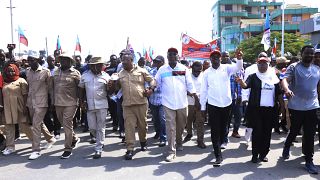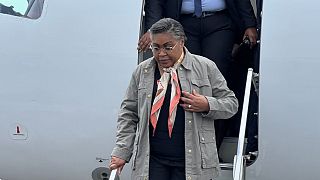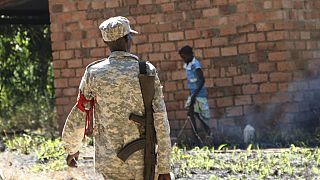Political crisis
The Guinean opposition last Saturday, March 28, rejected the result of a constitutional referendum, which they fear will be used by President Alpha Conde to extend his grip on power.
The proposal to change the constitution was hugely controversial in the West African state, spurring mass demonstrations in which at last 32 people have been killed, according to an AFP tally.
The FNDC, an umbrella opposition group, had called for a boycott of the referendum and rejected the result outright. “We will not recognize any institution resulting from this masquerade, nor will we recognize this new Constitution of Mr. Alpha Condé.
“We remain and will remain behind the May 2010 constitution which sets the number of mandates at two and which also gives the right to the people of Guinea to resist oppression,” an FNDC leader said.
The Independent National Electoral Commission president, Amadou Salifou Kebe, told reporters on Friday that 91.59 percent of ballots were in favour of adopting the new constitution, while 8.41 percent were against, following the March 22 vote.
The day of the vote was marred by violence, with scores of polling stations ransacked across the country and, according to the country’s political opposition, dozens were killed.
Guinea is currently under a state of emergency which was declared by President Conde days after the referendum vote. The move was part of a measure to contain the spread of coronavirus pandemic. The country currently has 16 confirmed cases.











01:11
DRC: UDPS pushes for complete overhaul of 2006 constitution
Go to video
Congo opposition leaders call for protests against president's plan to change constitution
01:06
DR Congo opposition, civil society dig in as Tshisekedi plots constitution change
01:02
Guinea junta dissolves dozens of political parties, silent on elections
01:16
Key details on Gabon's new constitution and upcoming referendum
01:08
Consultations underway on Gabon's future constitution